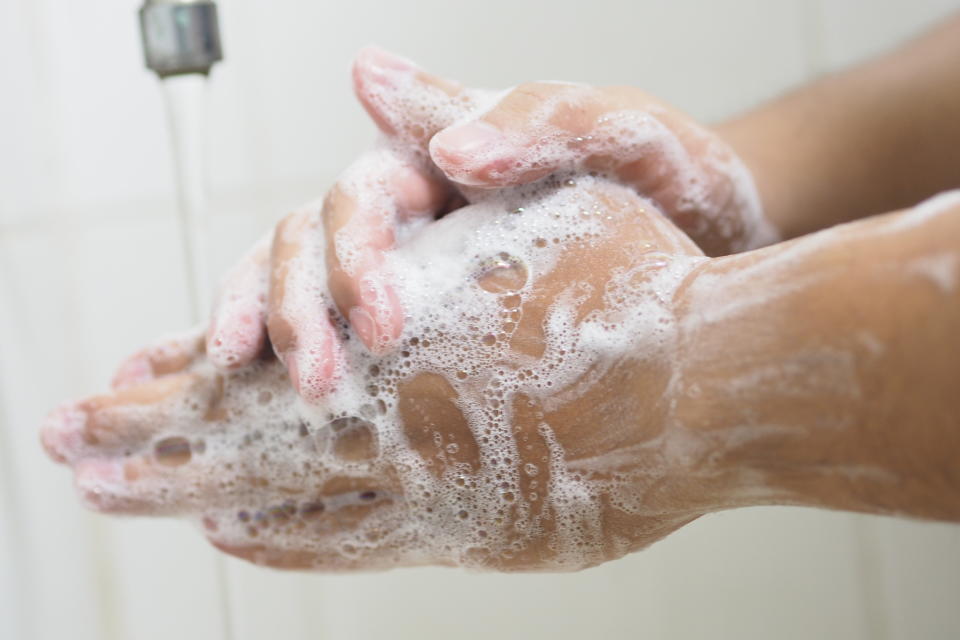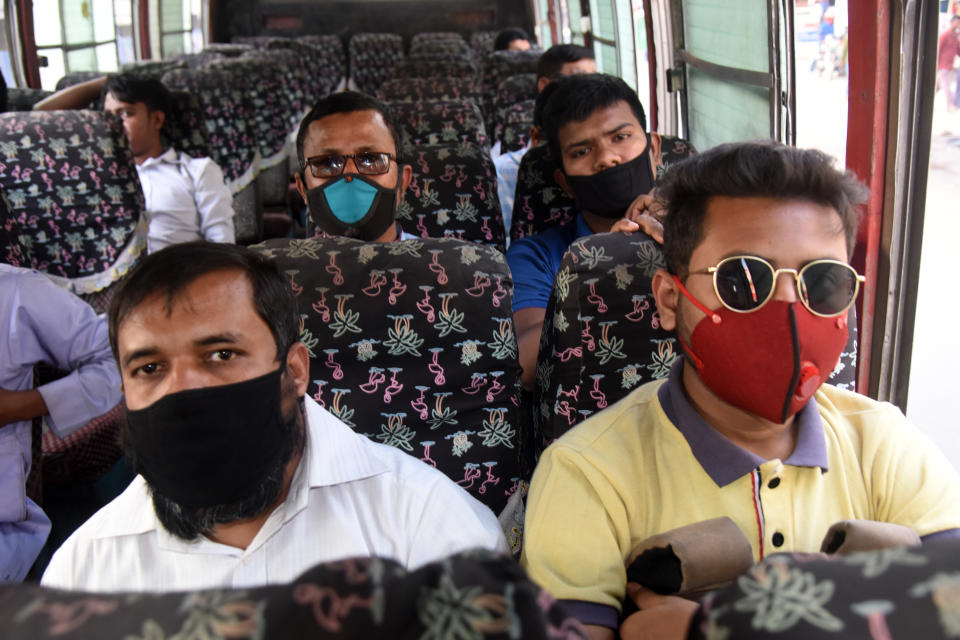Coronavirus: how to wash your hands to ward off infection

The coronavirus has spread well beyond its epicentre in the Chinese city of Wuhan.
Crossing national borders, the Covid-19 strain has reached at least 100 countries across every inhabited continent.
Read more: What are the symptoms of the coronavirus?
Since the outbreak was identified at the end of last year, more than 116,000 cases have been confirmed globally, according to John Hopkins University data.
Over 80,000 of these patients are in mainland China, where incidences have been plateauing since the end of February.

While many are on high alert, four out of five cases are thought to be mild, with more than 64,000 patients “recovering” to date globally.
In the UK, 26,261 Covid-19 tests have been carried out, leading to 373 diagnoses. Six Britons have died from complications of the virus.
The World Health Organization (WHO) recommends washing hands “frequently” with soap and water to “eliminate the virus if it is on your hands”.
An alcohol-based sanitiser can also be effective if the hand is not “visibly dirty”.
What is the best way to wash your hands?
When you go to wash your hands, the NHS advises you first wet them under running water.
While it does not specify the ideal temperature, New York's Division of Military and Naval Affairs states it should be “as hot as you can comfortably stand” - typically at least 38°C (100°F).
Next, apply enough soap to cover both hands.
Rub your hands together to create suds.
Use one hand to rub the back of the other, cleaning between the fingers as you go. Repeat with the other hand.
Rub your palms together, as well as the back of your fingers against your palms.
Read more: The risk factors of those most likely to die from the coronavirus
It is important not to forget your thumbs, which should be rubbed using the opposite hand.
The tips of the fingers should also be rubbed against the palm of the other hand.
The whole process should last around 20 seconds - the time it takes to sing Happy Birthday twice.
Finally, rinse your hands under running water, before drying them with a disposable towel.
Wet hands are said to “transfer viruses more effectively”.
Use the same towel to turn the tap off, before disposing of it.
When should you wash your hands?
Washing our hands regularly is always important to staying healthy, but particularly during an infectious outbreak.
To ward off the infection, the NHS recommends cleaning hands after using public transport or when you come into contact with someone who seems unwell.
Hands should also be washed before preparing food, as well as after using the toilet or being near animals.
If you do not have soap or sanitiser to hand, avoid touching your eyes, nose or mouth.
Speaking about cold and flu viruses, Dr Lisa Ackerley previously told Yahoo UK: “Germs that are just on your hands won’t make you ill as there is no transfer into the body.
“If the virus is on your finger and then you rub your eye, or put your finger up nose, that’s a route of infection.”
Anyone coughing or sneezing should wash their hands afterwards to help stem the spread of infection.

What is the new coronavirus Covid-19?
Covid-19 is one of seven strains of the coronavirus class that are known to infect humans.
The class is also made up of four strains that cause the common cold, severe acute respiratory syndrome (Sars) and Middle East respiratory syndrome (Mers).
Sars killed 774 people during its 2002/3 outbreak, while 858 people died in Mers’ 2012 outbreak.
Most of those who initially caught Covid-19 worked at, or visited, a seafood and live animal market in Wuhan.
Read more: Coronavirus generally 'causes symptoms within five days'
Officials confirmed early on in the outbreak the virus spreads face-to-face via droplets that have been sneezed or coughed out by a patient.
There is also evidence it may be transmitted in faeces and urine.
Covid-19 has no “set” treatment, with most people’s immune system fighting off the virus naturally.
Those requiring hospitalisation are given “supportive care”, like ventilation, while their immune system gets to work.
As well as regular hand washing, officials recommend “social distancing” to ward off the infection.

 Yahoo News
Yahoo News 
